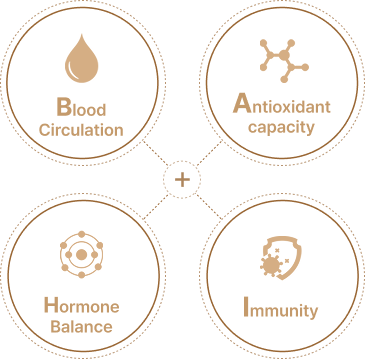BAHI Longevity
Functional Medicine
What is Functional Medicine?
What is BAHI Functional Medicine?
We must ask ourselves:
Do we only treat the surface symptoms, or do we address the root cause of disease?


Functional medicine focuses on analyzing and understanding the underlying causes of chronic illness. Instead of simply suppressing symptoms, it takes a holistic view of the body and lifestyle, offering personalized treatments that promote a healthier, more energetic life.
Health is not just the absence of disease.
True health is a state of positive vitality—where energy, joy, gratitude, and biological balance coexist in harmony.
Conventional medicine has achieved remarkable success in emergency care and surgical treatment. Since the 20th century, it has made great strides in treating infectious diseases and trauma. But why has it fallen behind in managing chronic conditions?
The reason lies in the complexity of chronic diseases, which often stem from lifestyle, environment, and multiple interconnected factors—making their root causes harder to identify. This is why a different approach is needed.
That approach is Functional Medicine.
And the solution that strengthens BAHI—Blood Circulation, Antioxidant, Hormone Balance, and Immunity—is BAHI Longevity, a program built upon the principles of functional medicine.
Functional Medicine:
A New Paradigm of Health
A New Paradigm of Health


Functional medicine does not simply suppress symptoms; it focuses on identifying and resolving the root causes of disease.
Drawing on the latest medical knowledge—nutrition, genomics, and epigenetics—it provides personalized treatment and prevention strategies by comprehensively analyzing each individual’s characteristics and lifestyle.
Core Approaches of Functional Medicine
– Holistic, patient-centered care: The body is viewed as one interconnected system.
– Root-cause resolution: Rather than short-term symptom control, it corrects physiological imbalances to restore long-term health.
– Prevention-first medicine: It identifies risks before disease appears and intervenes early.
Why Functional Medicine?
Why Functional Medicine?
Conventional medicine is divided by specialty—gastroenterology for the gut, dermatology for the skin, neurology for the brain—yet in reality, a skin condition may be linked to gut dysfunction or neural signaling imbalances.
Functional medicine recognizes these interactions across body systems and offers integrated solutions.
The Role of BAHI Longevity
Built on functional-medicine principles and powered by Hue Light’s advanced health technologies, BAHI Longevity is put into practice to strengthen the four pillars of health:
Photobiomodulation Treatment Device
Hyperbaric Oxygen Chamber
Hydrogen Inhalation Machine
Nano-bubble Hydrogen
Water Generator
Whole Body Wave
Motion Exercise Device
Nitro Biome
BAHI Longevity
Product Background
References
Customer Center
Get In Touch
- Haan-ro, Gwangmyeong-si, Gyeonggi-do, Republic of Korea
- +82)2-898-2116
- info@huelight.kr
Copyright 2026 © Hue Light Co., Ltd. All rights reserved.
Disclaimer: The medical papers and academic information provided on this site are intended for educational purposes only and are not meant to
diagnose, treat, prevent diseases, or substitute for a doctor’s advice.
